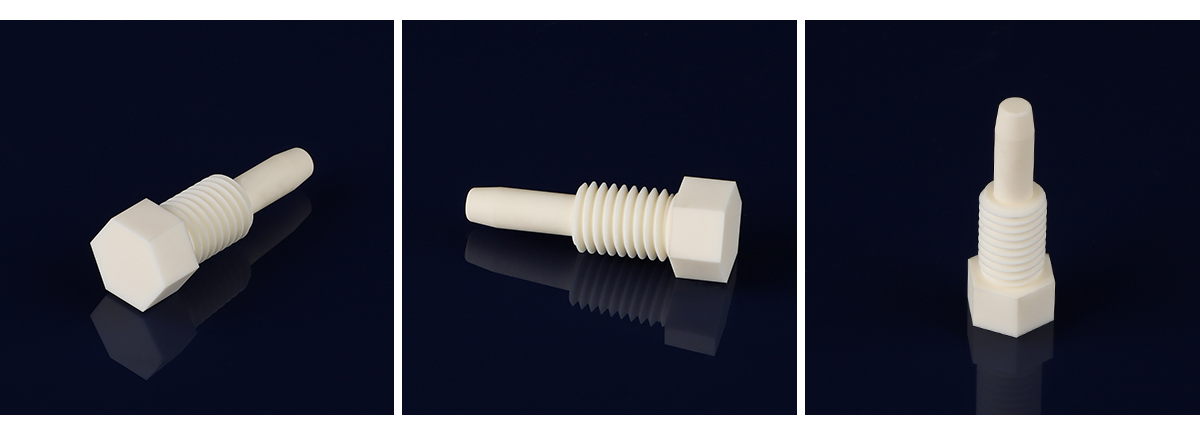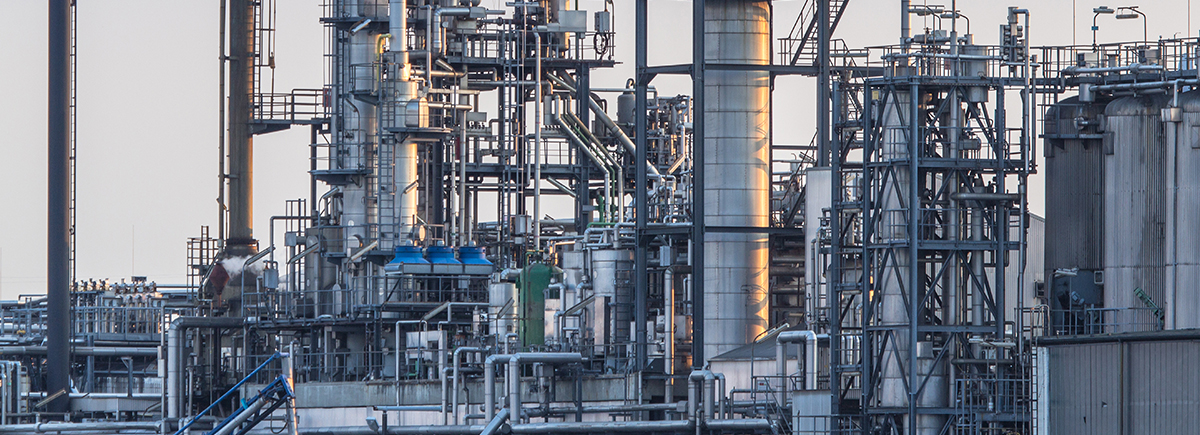What are the characteristics of screws made of alumina ceramics?
Alumina ceramic screws represent a significant advancement in fastening technology and have many advantages compared to traditional metal screws. These advantages make them very suitable for various demanding applications across multiple industries

Understanding alumina ceramics
Aluminum oxide or alumina (Al2O3) is a ceramic material known for its extraordinary hardness, thermal stability, and electrical insulation properties. Due to its ability to withstand harsh conditions without degradation, it is widely used in industrial applications. The production of alumina ceramics involves processes such as pressing, sintering, and machining to produce both sturdy and precise components.
The main advantages of alumina ceramic screws
1. Extraordinary hardness and strength
Aluminum oxide ceramic screws exhibit extraordinary hardness, with a Mohs hardness level of 9, slightly lower than diamond. This makes them highly wear-resistant and wear-resistant, significantly superior to metal screws in environments with high mechanical stress. Their excellent hardness ensures a long service life and consistent performance, reducing the frequency of replacement and maintenance.
2. Thermal stability
One of the most significant advantages of alumina ceramic screws is their ability to maintain structural integrity at high temperatures. Unlike metal screws, metal screws can expand, contract, and even melt under extreme high temperatures, while alumina ceramic screws can withstand temperatures up to 1700 ° C (3092 ° F). This characteristic makes it very suitable for use in high-temperature environments, such as furnaces, engines, and aerospace applications, where traditional metal screws will fail.
3. Electrical insulation
Aluminum oxide ceramics are excellent electrical insulators, a characteristic that metal screws lack. This makes alumina ceramic screws indispensable in electrical and electronic applications where conductivity is crucial. They can prevent short circuits and electrical faults, improve the safety and reliability of electronic devices and systems.
4. Chemical resistance
Compared with metal screws, alumina ceramic screws have excellent corrosion resistance and chemical resistance. Metals, especially when exposed to harsh chemicals or corrosive environments, can corrode, leading to potential structural failures. On the other hand, alumina ceramic screws are inert to most chemicals, including acids and bases, ensuring durability and reliability in chemically aggressive environments such as chemical processing plants and laboratories.
5. Biocompatibility
In medical and dental applications, the biocompatibility of materials is crucial. Aluminum oxide ceramic screws have biocompatibility, which means they will not cause adverse reactions when in contact with biological tissues. This makes them suitable for use in medical implants, orthopedic devices, and dental prosthetics, as metal screws may cause allergic reactions or other complications.
6. Lightweight
Although alumina ceramic screws are sturdy and durable, they are lighter than metal screws. This weight reduction is particularly beneficial in applications where minimizing weight is crucial, such as in aerospace, automotive, and high-performance sports equipment. The use of alumina ceramic screws helps to save overall weight and improve the efficiency and performance of these systems.
7. Magnetic and pollution-free
Aluminum oxide ceramics are non-magnetic, making them suitable for applications sensitive to magnetic interference. This non-magnetic property is crucial in the manufacturing of sensitive electronic devices and medical devices such as MRI machines, as metal screws may interfere with magnetic fields. In addition, alumina ceramics do not contaminate products, which is an important factor in food processing, pharmaceuticals, and cleanroom environments.
Comparative analysis: alumina ceramic screws and metal screws
Durability and Maintenance
Although metal screws are prone to rust, oxidation, and wear, alumina ceramic screws will maintain their structural integrity over time. This durability translates to lower maintenance costs and fewer replacements, although the initial cost is higher, it can still bring long-term economic benefits.
Performance under extreme conditions
In environments with extreme temperatures, corrosive chemicals, or high mechanical stress, alumina ceramic screws always outperform metal screws. Their ability to maintain performance without degradation under these conditions makes them the preferred choice for many high stress applications.
Security and reliability
The electrical insulation performance of alumina ceramic screws improves the safety and reliability of electronic and electrical systems. In addition, their chemical inertness and biocompatibility ensure safe use in medical and food processing applications where unacceptable contamination and adverse reactions are present.
Cost considerations
Although the initial cost of alumina ceramic screws is higher than that of metal screws, the long-term savings brought about by reducing maintenance, replacement, and downtime can offset this initial investment. The improvement of performance and lifespan of alumina ceramic screws helps to improve overall cost-effectiveness in many applications.

The application of alumina ceramic screws
1. Electronic and Electrical Engineering
In the electronics industry, alumina ceramic screws are used for installing and fixing components without the risk of short circuits or electrical failures. Their insulation performance makes them an ideal choice for high-frequency and high-voltage applications.
2. Medical devices
Aluminum oxide ceramic screws are used in medical implants and devices due to their biocompatibility and tolerance to body fluids and tissues. They are crucial in orthopedic surgeries, dental implants, and other medical applications that require reliable and safe fasteners.
3. Aerospace and automotive industry
The lightweight and high temperature resistance of alumina ceramic screws make them suitable for aerospace and automotive applications. They help reduce overall weight, improve component thermal stability, and improve performance and fuel efficiency.
4. Chemical processing and industrial applications
In chemical plants and industrial environments that are frequently exposed to corrosive substances, alumina ceramic screws have unparalleled chemical corrosion resistance, ensuring long-term reliability and safety.
Aluminum oxide ceramic screws are an excellent alternative to traditional metal screws, with many advantages such as excellent hardness, thermal stability, electrical insulation, chemical resistance, biocompatibility, and lightweight performance. These benefits make them indispensable in a wide range of applications, from electronic and medical devices to aerospace and industrial environments. Although their initial cost may be higher, their long-term performance and durability bring significant economic and operational benefits, making them a worthwhile investment for many industries.
Dongguan Jundro ceramics Technology Co.,Ltd
E-mail:info@jundro.com
Tel:+86-769-82913501
Fax:+86-769-82913801
Add: Room 306, Gate B, Unit 1, Block 2 South, No. 1 Yile Road, Songshan Lake, Dongguan City, Guangdong Province, China(523808)
© August Dongguan Jundro ceramics Technology Co.,Ltd- 2023